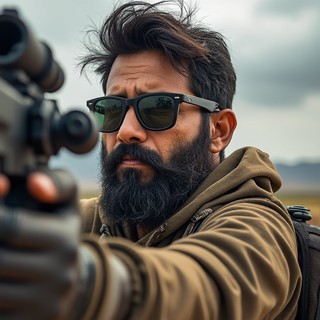I have a personal story to share of a near-miss incident that almost cost my life and quite possibly the lives of others as well. This happened almost 20 years ago in the Chicagoland area. I was driving my car at around 60 mph on one of the freeways near Chicago, while trying to tune my car stereo to a radio station. For younger readers unfamiliar with FM radio, this is something drivers did in an era before smartphones, streaming music, podcasts, and Apple CarPlay / Android Auto stereos that take voice commands. (To older readers who may find this facetious, note that my kids have never seen a flip phone.)
It took only a few seconds to tune into my favorite radio station. But when I got my eyes back on the road, the traffic in front of me was at a complete standstill. I was headed at a high speed towards the car in front of me. Traffic in the adjacent lane was also fully stopped but had space for one car. Thankfully and luckily, my instincts and training kicked in, and I did a brake-swerve-brake maneuver, rapidly slowing down the car, switching lanes while keeping my eyes on where I was going instead of what I was avoiding, and coming to a full stop with a couple of inches separating me from a horrible collision. My heart took about half an hour to calm down and I was rattled for days after that.
The training and skills that saved my life came from the Motorcycle Safety Foundation. I had years of riding experience prior but decided to take their Advanced Rider Course, which teaches many useful skills including collision avoidance. The practical part of the course included maneuvering around cones at relatively low speeds to simulate collision avoidance. Those skills made me a much better motorcyclist. And as the above story shows, the skills carried over from motorcycle riding to driving cars.
The Motorcycle Safety Foundation (MSF) is a non-profit founded by motorcycle manufacturers and distributors and has been around for almost 50 years. The MSF develops and maintains training materials and courses for both new and experienced riders. The MSF itself administers courses in a handful of states, with the rest of states’ courses typically administered by state agencies or community colleges, some at cost, and some for free with costs recovered through other means. The nominal cost of the Advanced Rider Course I took was $0.
Besides the obvious life-saving features of the training, some MSF courses also come with the benefit of insurance discounts. Motorcycle insurance is expensive, especially for young men who are overrepresented in crash statistics. Lowering the cost of insurance while encouraging safe behaviors through training and education is a win-win for everyone: the riders, the insurance industry, motorcycle manufacturers, and the public.
So how can the firearms industry benefit from such an approach? The current landscape of firearms training is diverse with courses offered from various organizations such as the NRA, Project Appleseed, United States Concealed Carry Association (USCCA), and the Civilian Marksmanship Program (CMP). There is no umbrella organization for training.
The National Shooting Sports Foundation (NSSF), the firearms industry trade group, does great work in gun safety, with Project ChildSafe as an outstanding example of their work. They also run the website WhereToShoot.org, a useful resource for finding gun ranges. Their YouTube channel is an excellent resource for learning everything from how to clean guns properly to the basics of long-distance shooting. The NSSF has also been working on its own training program named “First Shots,” which comes with a $25 reward for course completion.
However, where I think the firearms industry will benefit is by sweetening the incentives for training by creating a discount program for the purchase of a first gun, upon completion of courses recognized for their thoroughness and the emphasis and encouragement of safe behaviors. A discount for a first gun, if significant enough, will provide the same benefits that MSF motorcycle courses indirectly offer via insurance discounts: a win-win for everyone involved. Administrative details will need to be ironed out about which courses will qualify, how a one-time discount will be provided, which manufacturers, distributors, or retailers participate and so on, but an industry-wide discount will make a good impact.
Such a discount program will not require government involvement like the tax credits being offered in some states for the purchase of gun safes. It can be done entirely by the industry and will achieve its intended effects without the heavy hand of government egged on by the meddlesome busybodies at Moms Demand, Giffords, or Everytown.
When the enumerated right to keep and bear arms is unconstitutionally subject to majority opinion, expanded gun ownership is a necessity and such a discount program modeled after the motorcycle industry will dovetail nicely with that goal.









Join the conversation as a VIP Member